Site Topics

Pharm Crops
Apr 19th
What if vaccines could be eaten instead of injected? Scientists began developing subunit vaccines in the late 1980s; these are vaccines which contain isolated pathogen proteins. It seems that proteins from viruses, bacteria, and parasites can trigger an immune response (are antigenic) even when the pathogens are not present. Furthermore, these proteins can be antigenic when eaten, which has led scientists to explore whether we can genetically modify food sources to create edible vaccines.
Dr. Charles Arntzen (Co-Director of the Center for Infectious Diseases and Vaccinology, The Biodesign Institute and Florence Ely Nelson Presidential Chair, Arizona State University) has spearheaded the More >

Involuntary Sterilization?
Apr 15th
A North Carolina-based charity’s initiative to pay drug and alcohol abusers to be sterilized or choose long-term birth control (IUD) has popped up recently in my Google “eugenics” news alert. Once an addict proves they have had a procedure to prevent pregnancy, they are given $300. Several thousand individuals have participated in the program in the US. The group argues that the policy will prevent the birth of children that will likely become a societal burden or at the very least be raised in an unstable environment. Those who oppose the initiative argue that often addicts get clean with the More >
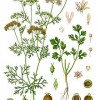
Cilantrophobia
Apr 14th
Growing up I was a very picky eater. When I didn’t like what my mother had prepared for dinner, I would usually just say, “I’m not hungry” and make myself a peanut butter sandwich. As a grown up, my food choices have changed a great deal, in fact, I enjoy trying new things and watching to Food Network for good ideas.
One of the cooking tips that I have picked up from all of the foodie shows I watch is to use fresh herbs, whenever possible. Believe it or not, that green spring of parsley on my plate at restaurants that More >

Adjusting your moral compass
Apr 6th
It can be kind of frightening to think about it, but there really is such a thing as mind control.
Now, we are not talking Hypnotoad or Professor-X style mind control (not yet at least) but a simple experiment that demonstrates how mind and brain interact and can be manipulated.
In the study conducted by Rebecca Saxe of MIT (http://www.pnas.org/content/early/2010/03/11/0914826107.full.pdf+html)
used a technique call transcranial magnetic stimulation (TMS) to disrupt a region of the brain known as the right temporo-parietal junction (TPJ). As every child knows, one of the best ways to figure out how something works is to take it apart and More >
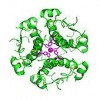
Possible Future Treatment for Type 1 Diabetes
Apr 5th
Insulin, a hormone produced by the pancreas, signals cells to remove glucose from the blood and store it as glycogen. Glucagon is a protein also produced by cells in the pancreas but it has the opposite effect of insulin. When blood glucose levels are low, glucagon causes the breakdown of glycogen into glucose that is then released into the blood. The insulin is made in beta cells, where as the glucagon is made in alpha cells. In patients with type 1 diabetes, the immune system attacks the beta cells, eliminating insulin production.
Scientists from the University of Geneva have shown that More >

Sexual Selection
Apr 1st
When we think about all of the living things on Earth, we immediately see how different we all are from each other. Many of these traits that might seem bizarre to us, evolutionarily speaking, have a tremendous amount to do with the survival. Many traits have been selected for by the opposite sex, because it will help the passing on of their design information.
One very amazing example of this is the Widowbirds that live in the grasslands of southern and eastern Africa. During the non-mating season, the males and females look very similar to one another. Once breeding season begins, More >
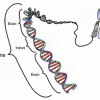
Whole Genome Sequencing: Mutation Diagnosis of the Future!?
Mar 19th
Two Scientific teams independently attempted a new approach to discovering the cause for certain diseases by sequencing the whole genome of their patients. This technique was done not only to help their current patients but hopefully to shed light on other common killers such as heart disease, diabetes and Alzheimer’s.
One Scientist from Baylor College of Medicine in Houston Texas, Richard A. Gibbs, decided to test whole genome sequencing on his colleague, a medical geneticist, Dr. James R. Lupski, who suffers from a rare genetic disorder known as Charcot-Marie-Tooth Neuropathy (this disease damages nerves to the hands and feet and causes More >
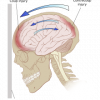
Mind Your Stretching!
Mar 19th
A traumatic brain injury can be described as a physical injury to the brain causing an impairment of brain function. When the brain is injured, it can cause conditions such as brain contusions, hematomas and skull fractures. These traumatic brain injuries can range from mild to severe and can cause permanent disability or death.
In the United States, an estimated 1.4 million people a year are victims to traumatic brain injuries obtained from motor vehicle accidents, falls, abuse, assault, and sporting accidents. Our brains are organs full of connections and to sever or damage a connection can lead to devastating consequences. More >
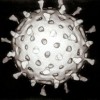
Viral Influence
Mar 17th

